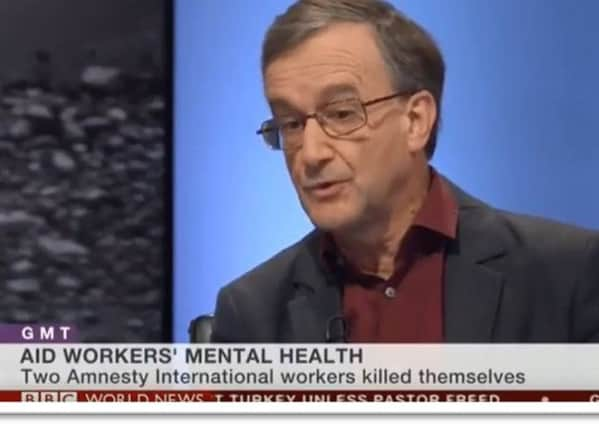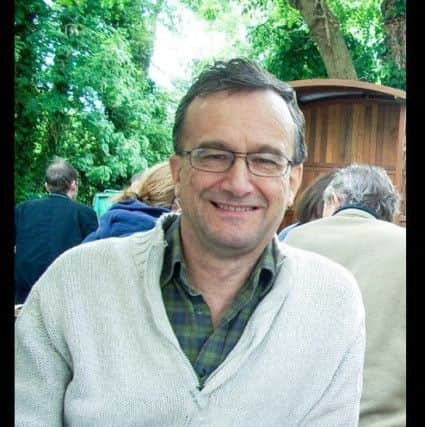Leighton Buzzard-based psychologist leads the debate on supporting traumatised humanitarian aid workers


Graham Fawcett, a consultant psychologist for the East London NHS Foundation Trust which provides mental health and community services in Bedfordshire, was filmed for an interview that was aired to coincide with World Humanitarian Day last month.
The 63-year-old, who has lived in the town for the last five years, explained: “Aid work is a very dangerous profession. 138 people were killed in the field last year and over 90 per cent of workers will encounter traumatic circumstances at some stage.
Advertisement
Hide AdAdvertisement
Hide Ad“The aid sector is moving towards high quality standards of care, with frameworks that are agreed across the whole sector. Good leadership means the implementation of robust management systems to protect those exposed to the most harm, whether that is our frontline aid workers or the most vulnerable people on the ground whom we seek to serve. But action really needs to be stepped up to ensure that the carers and the cared-for get the kind of psychological support they need.”


In his role as Director of Psychosocial services for Thrive World Wide, an organisation that works to enhance global health provision in resource poor countries, Graham hopes to encourage the creation of an international ombudsman office to help further progress.
He remembers the impact the Rwandan civil war had on humanitarian aid workers in the 1990s, and added: “Aid workers were there working in what at one moment seemed to be a place of relative tranquillity, where various projects to support agricultural growth in the countryside were the norm. The next moment it seemed as if the conflict just erupted out of nowhere, and those working with both communities were completely unprepared for the trauma they were caught up in.”
Graham has spoken at numerous international summits on the subject, including most recently at the United Nations in both New York and Geneva. He has recently returned from the International Humanitarian Studies Conference at The Hague where he presented a number of papers on the subject.